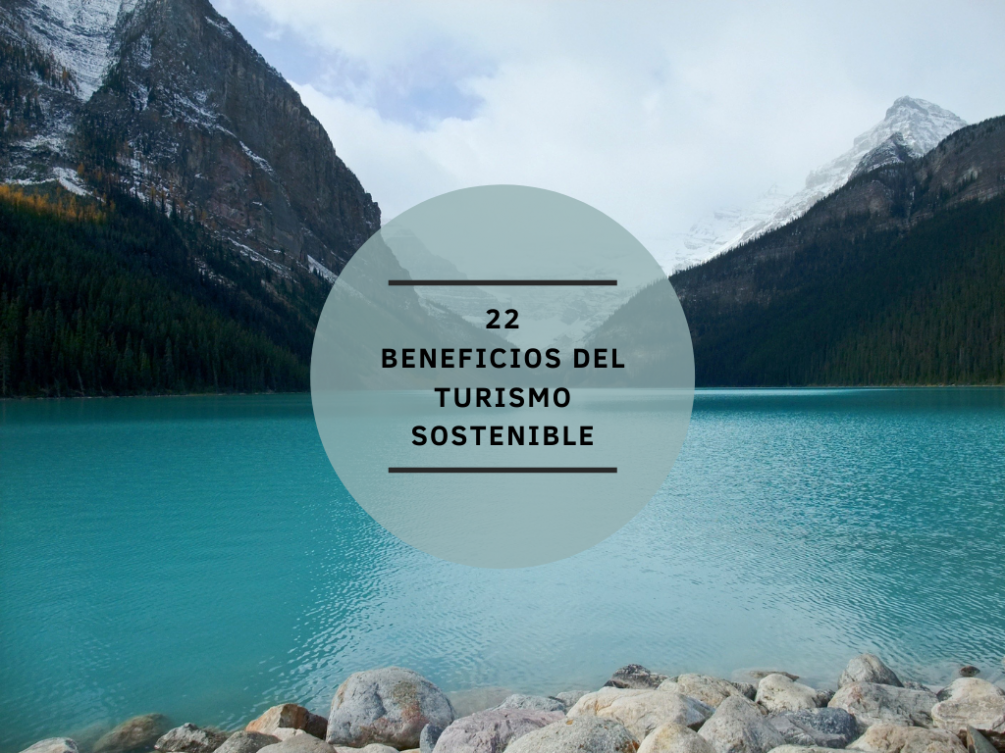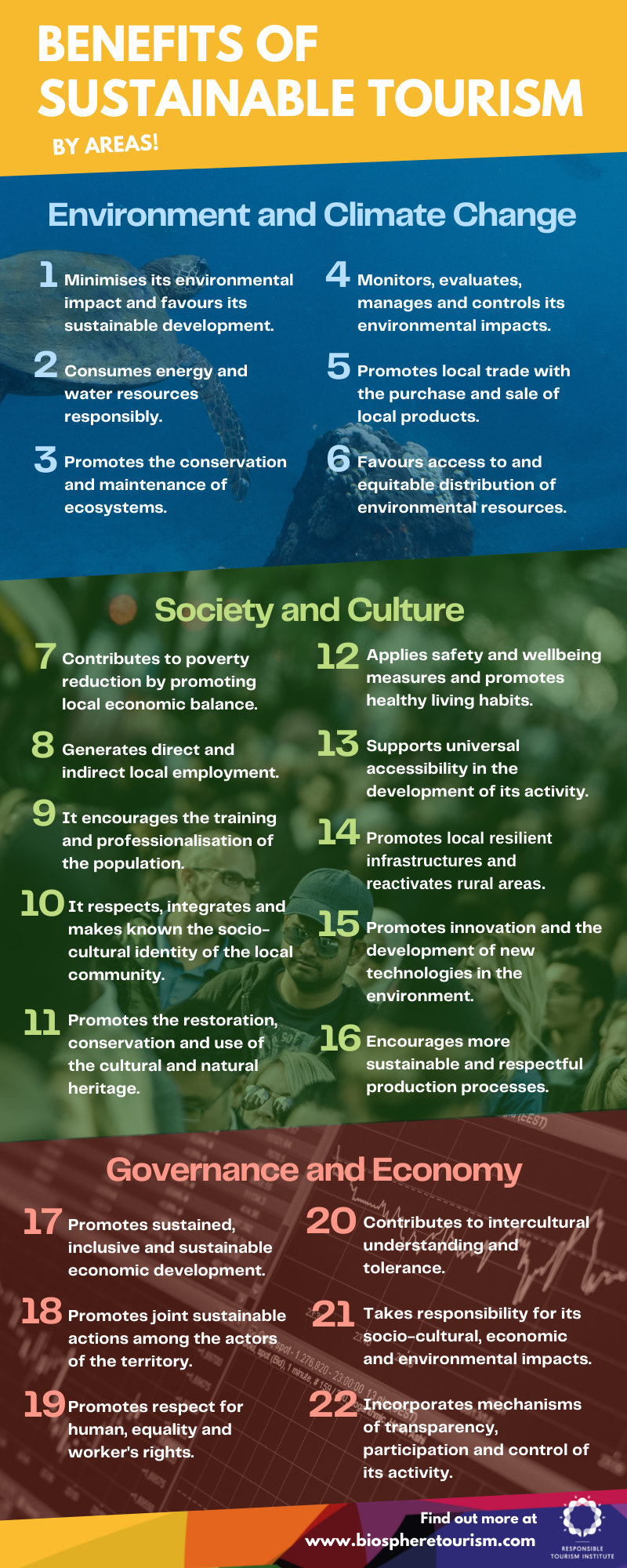Tourism is a major industry in the world economy. With a continuous expansion in the number of travellers and the amount of revenue it generates, it is important to understand the concept of sustainable tourism and the benefits of practising this type of tourism.

Over the last decades, the tourism sector has experienced remarkable growth, becoming a major industry in the international economy and trade. The total revenue earned by international tourism globally was 1,260 billion in 2015, while the number of international travellers amounted to 1,186 billion in 2015. Moreover, it has proven to be a stable and resilient sector to crises and other economic phenomena, maintaining uninterrupted growth since 2009.
However, despite the economic benefits generated by the sector, conventional tourism also produces several negative effects of great impact given the magnitude of the industry: pollution of natural reserves, erosion, hotel overcrowding, displacement of the local population in the face of the arrival of visitors, etc. In this context, the concept of sustainable tourism is becoming increasingly important.
The definition of Sustainable Tourism according to the World Tourism Organisation (UNWTO) is: "Tourism that takes full account of current and future economic, social and environmental impacts to meet the needs of visitors, the industry, the environment and host communities". Thanks to the diversity of relationships involved in tourism activity, sustainable tourism has the capacity to act as a catalyst for change in the world, benefiting the fight against causes such as hunger, peace and security, the promotion of local economies...
In order to raise the awareness of the general public and public and private decision-makers on this issue, as well as to increase its scope, the year 2017 has been designated by the United Nations as the International Year of Sustainable Tourism for Development. In this way, the World Charter for Sustainable Tourism +20 continues its trajectory as a vehicle for the tourism sector towards the achievement of the 17 Sustainable Development Goals of the United Nations.
With the Biosphere certification, the Responsible Tourism System developed by the Responsible Tourism Institute, recognises the commitment to sustainability of certain tourism agents and destinations, functioning as a system for measuring and driving towards sustainability.
In this way, the benefits derived from the practice of Sustainable Tourism are the following:

1) It has a minimal environmental impact by making optimal use of environmental resources, maintaining essential ecological processes and helping to conserve natural resources and biological diversity.
2) It respects the socio-cultural authenticity of local communities by preserving their cultural and architectural assets and traditional values and contributes to intercultural understanding and tolerance.
3) It integrates local communities into tourism activities.
4) It generates local employment, both directly and indirectly. Specifically, for every direct job generated, three indirect jobs are created.
5) Stimulates the development of tourism businesses (travel agencies, transport, accommodation, food, recreational and complementary activities), as well as businesses dedicated to supply activities (livestock, agriculture, communications, etc.).
6) It generates foreign currency for the State and supplies capital to the local economy.
7) The economic benefit is used for conservation or local development, and is distributed among all local actors, thus contributing to poverty reduction.
8) It induces regional planning, benefiting a harmonious and integral development of all sectors of the economy.
9) It generates awareness of local political, social and environmental problems, favouring responsible consumption and respect for the environment.
10) It is a meaningful and enriching experience for tourists, and encourages sustainable tourism practices in their own environment.
11) It requires constant monitoring of its incidents in order to introduce the necessary corrective measures or corrective actions. In this way, it stimulates the improvement of infrastructures serving tourism (communication routes, telecommunications, drinking water, sanitary sewerage, collection and final disposal of solid waste, airports...).
12) Promotes the restoration, conservation and use of archaeological sites, architectural monuments and any physical work of collective and national interest.
13) It allocates part of the profits to the construction of works of community interest such as schools, medical centres, sports facilities, cultural centres...
14) Promotes and values local, regional and national cultural manifestations (dances, crafts, gastronomy...).
15) Achieves a balanced development with the environment, through studies of environmental impacts and environmental monitoring.
16) Promotes community self-esteem.
17) Offers, values, preserves and generates economic benefits from flora and fauna resources, for the benefit of local communities.
18) It monitors, evaluates and manages the impacts it generates, developing models of perpetuity of its own development.
19) Reactivates rural areas: it directly and indirectly revives the local economy and brings life to these areas, whose inhabitants benefit from a wider range of activities and from visitors who are more responsible and respectful of their culture and environment.
20) It supports human rights and workers' rights, as it is based on respect for the host communities and creates quality employment.
21) It improves the quality of life of the local population, both economically and socio-culturally.
22) Finally, sustainable tourism promotes the consumption of local and natural products from the areas where it takes place.
Click here for more information about Biosphere Sustainable Certification.